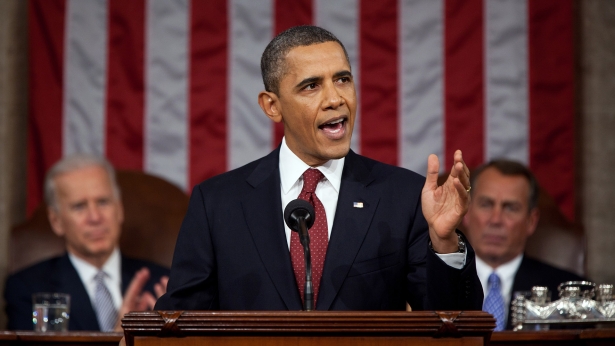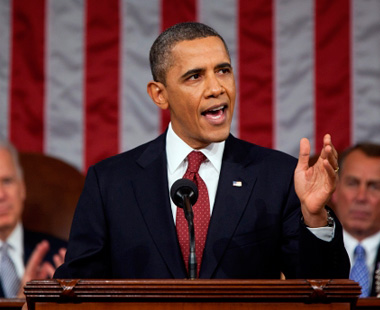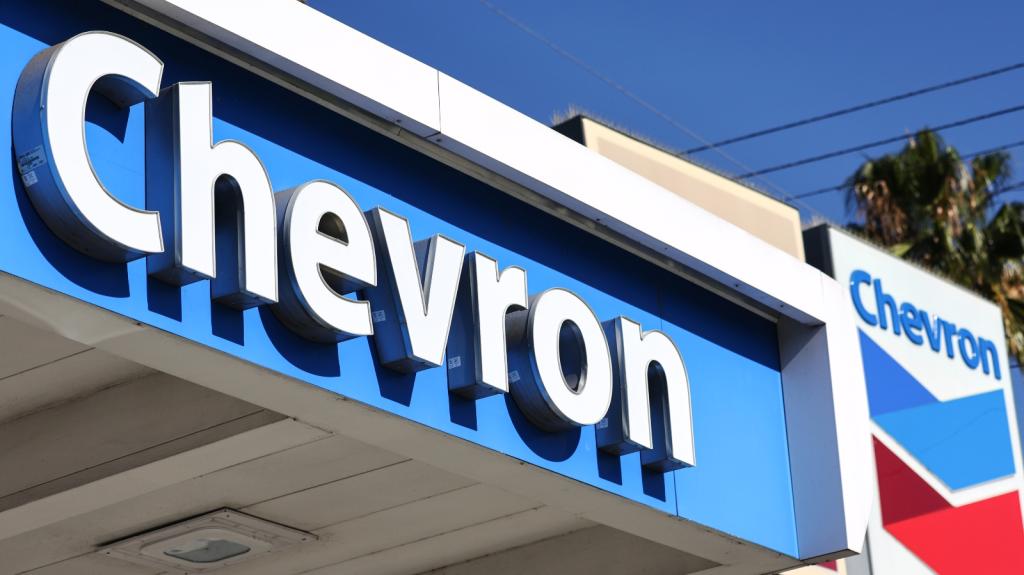
Photo by Pete Souza/White House.
After every State of the Union speech, pundits rush to lament that the speech contained lofty rhetoric unmatched by substantial policy proposals. All the concrete ideas are “small bore,” a “laundry list.” And indeed, that’s a fair way to characterize last night’s speech.
But that criticism misses the point. The president does not control domestic policy. There are some things he can do from the executive branch, but for anything big, he has to ask the legislature. Given that this Congress has shown little appetite for doing, um, anything, it’s highly unlikely that Obama’s proposals will become law. If he proposes a “big idea,” it’s just a big idea that won’t become law, something to hang around his neck.
(It’s worth noting that a couple of the small-bore proposals were quite significant. Obama thinks “every multinational company should have to pay a basic minimum tax” — that would be a pretty big deal. It would also be a big deal if he required all companies drilling for natural gas to disclose what chemicals they use, something I believe the EPA is mulling. More detail on his proposals in this document.)
To me, what’s notable about the SOTU is what it reveals about the political thinking of the administration. As much as we might wish otherwise, the White House is a pretty reliable barometer for the safe center of public opinion. Especially in an election year, the SOTU shows which fights the administration feels comfortable fighting and thinks it can win.
I never expected Obama’s support for fossil fuels to wane; it’s been consistent since well before he ran for president. He has always been a cheerleader for oil and gas, perhaps because he really believes in them, perhaps out of a misguided sense that doing so will inoculate him from Republican and industry attacks. The Keystone XL fight and the grassroots coal movement have both demonstrated that fossil fuel development can be blocked on a case-by-case basis, but there is little to no political prospect of shifting the administration’s thinking on it. “All of the above,” while it makes no sense as policy and will eventually doom the climate, is, for now, the safe political ground.
Anyway, given all that, I didn’t find the fossil-boosting in the speech all that odious. Some of it was over the top, but it mostly referenced policies that are already in place. And in retrospect, its main function was to set Obama up for a strong defense of clean energy.
That’s what I was watching for: whether the president would back down on clean energy in the face of coordinated GOP assault. (Solyndra is the battle flag of Republicans, but they’re going after clean energy on multiple fronts.)
He did not. Instead, he doubled down: “Some technologies don’t pan out; some companies fail. But I will not walk away from the promise of clean energy.” The portion of the speech on clean energy policy was both longer and stronger than I expected. This is the killer bit:
I will not cede the wind or solar or battery industry to China or Germany because we refuse to make the same commitment here. We have subsidized oil companies for a century. That’s long enough. It’s time to end the taxpayer giveaways to an industry that’s rarely been more profitable, and double-down on a clean energy industry that’s never been more promising.
Now, of course I like this. But check out the results from a focus group consisting of 50 swing voters from both parties:
Not surprisingly, the moment in the speech that brought the most positive reaction was Obama’s mention of the death of Osama bin Laden. It drew an average reading of 80 on the 0-100 scale used by the meters. Obama’s call for more investment in renewable energy drew nearly as strong a reaction, however, said Andrew Baumann, another of the pollsters who conducted the study. The passages of the speech that talked about phasing out subsidies for oil companies and competing with China and Germany for new developments in wind power and solar energy did particularly well.
This is what the administration has figured out that many CW-immersed political journos have not: No matter how much the right squawks, no matter how much money the Chamber of Commerce spends on attack ads, Americans love clean energy. They know that fossil fuels are the past and clean energy is the future and it makes sense to them to shift public resources from the former to the latter. This is a killer political issue.
Republicans have convinced themselves and much of the Beltway press that energy is going to be their wedge issue this year, the one they use to bleed Obama. But it’s a hollow threat. Americans do support continued development of U.S. oil and gas — that public opinion battle is a long, long way from being won — but they are even more enthusiastic about clean energy and the cleantech industries of the 21st century.
Dems can win on energy this year. All they need to do is get a pair, stop cringing, and go on the attack.
——
Addendum:
Before my green friends yell at me, yes, of course, what Obama proposed is laughable in the face of what’s needed. Of course a rousing bit of truth-telling on climate change would have been nice. Of course a call to put more areas off-limits to drilling would have been nice. There’s all sorts of stuff he could have said to stoke his green base.
But greens should be honest with themselves: The energy issue is a tough nut to crack for a national politician. Contrary to what a lot of folks seem to think, Obama can’t change the political climate or public opinion with the power of his words. No president, including The One, is willing to get out very far ahead of public opinion; presidents react to it more than they shape it.
If climate hawks want Obama to say and do stuff they like, they have to create the political climate for it. That takes organizing. Any president’s speeches will be barometers of that effort, not drivers of it.



